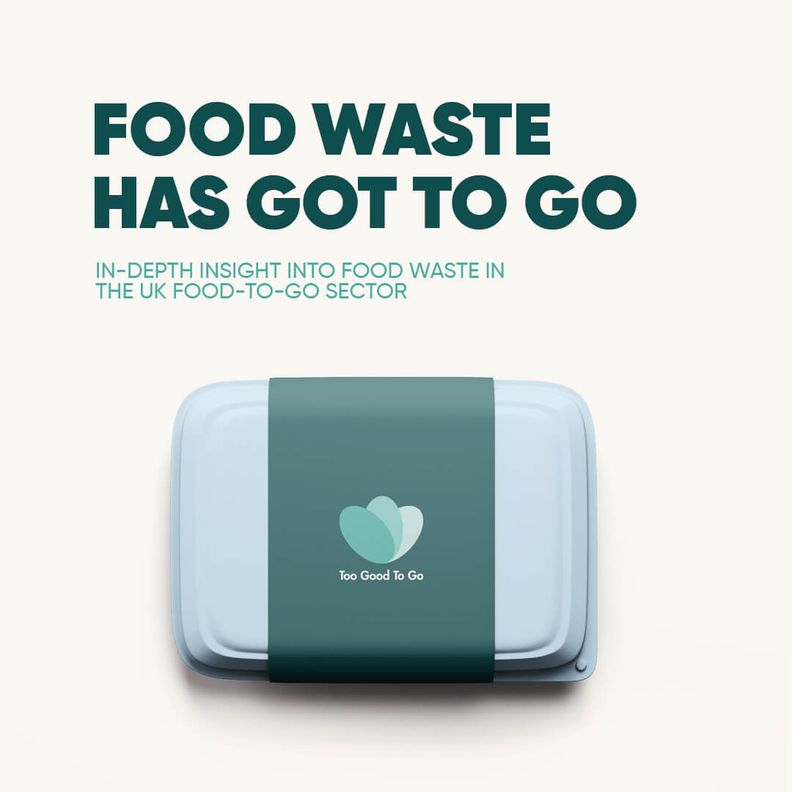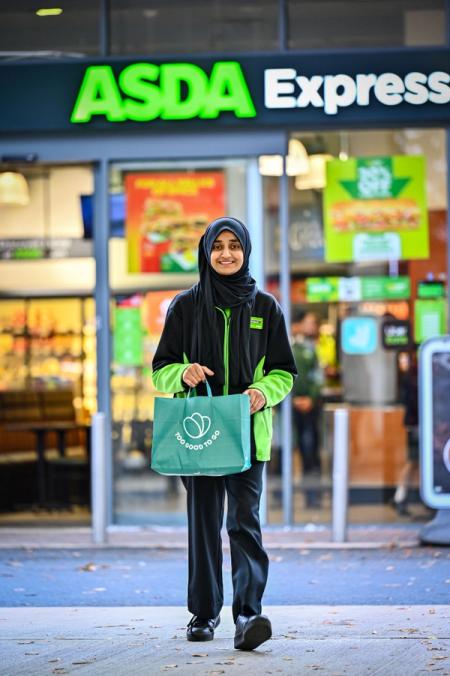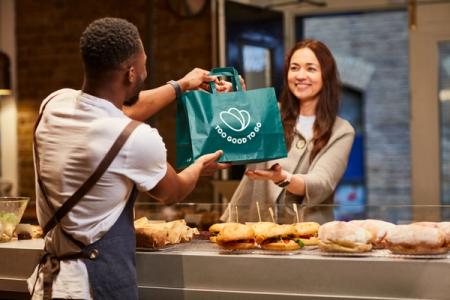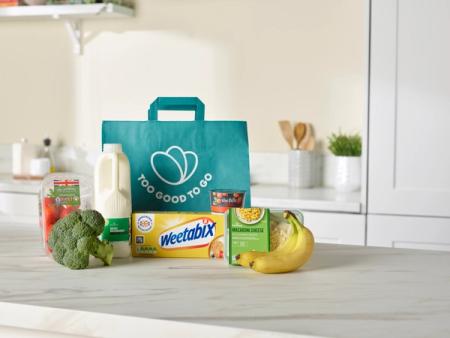PRESS RELEASESFood-to-go employees care about food waste but don’t have the tools or training to tackle it
Food-to-go employees care about food waste but don’t have the tools or training to tackle it

London - 9 September 2020 - Food app with an environmental conscience, Too Good To Go, has today launched a report that details new insight into food waste in the food-to-go sector.
The report which analyses survey responses from employees in the sector as well as consumer behaviour, has found that nine out of ten employees are negatively impacted by how much food their business wastes on a daily basis. Emotions such as frustration, guilt, sadness and anger were all identified as being felt when food is wasted, with disappointment felt the most - by half (49%) of all employees surveyed.
Despite this concern for food waste from employees, business operations are not set up to tackle the issue. Only 46% of employees surveyed said their business has operations guidelines or documents that detail best practices for dealing with and reducing food waste. On top of this, training is limited. Less than half of employees surveyed (45%) stated that they receive sustainability awareness or employee sessions on reducing food waste.
When asked about the reasons for food waste in their business, one third of respondents (36%) stated that poor stock management was to blame. However, the survey also found that almost two thirds of businesses (60%) do not have a stock management process in place to reduce food waste.
On the report’s findings, Jamie Crummie, co-founder of Too Good To Go, said: “It is clear that employees in the food-to-go sector are becoming more aware of the issue of food waste in their business - more than eight in 10 employees in the sector are aware of how much food their business wastes on a daily basis. And the negative impact this is having on employee wellbeing is a cause for concern.
“There also remains a stark knowledge gap in the impact of food waste. Over a third of employees are still not aware of the environmental impact of throwing away food. With sustainability rising up the agenda for employees and consumers, it is vital for food-to-go businesses to step up and ensure that they’re actively playing a role to reduce food waste. ”
Too Good To Go lets people buy surplus food from restaurants, retailers and producers to stop it from going to waste. They simply download the free Too Good To Go app and search for nearby businesses with unsold food. They then purchase a ‘Magic Bag’, collect it at an allotted time and enjoy it.
The full ‘Food Waste Has Got To Go report can be downloaded here: https://toogoodtogo.co.uk/en-gb/lp/b2b/foodtogo-industry-report
For more information on Too Good To Go visit www.toogoodtogo.co.uk.
ENDS
Notes to editor:
Survey of 255 nationally represented food-to-go employees conducted by Opinion Matters on behalf of Too Good To Go between 6-12 August 2020.
Survey of 2,005 nationally represented consumers conducted by Markettiers on behalf of Too Good To Go between 5-10 August 2020.
Full report available on request.
Employee Insights:
84% UK food-to-go employees are very aware of how much food is wasted in their business each day
Almost two thirds (61%) of food-to-go sector employees think food waste should be minimised to help the environment
Employees ages 16-24 are more concerned about helping the environment than those aged 45-54 ( 89% as opposed to 43%)
Employees report only one third (33%) of businesses in the food-to-go sector use food waste apps
Less than half of food-to-go operations (46%) have operations guidelines/documentation that includes food waste best practices
Less than half of food-to-go businesses (45%) hold sustainability awareness or reducing food waste sessions with employees
Almost two thirds of businesses (60%) do not have stock management in place to reduce food waste
Poor stock management accounts for a third (36%) of food waste in the sector
Fruit and veg is the most wasted food type in the sector, with over half employees stating it is the most likely to be wasted in their business (57%)
Unpredictable fluctuations in customer footfall is the main reason for food waste in the food-to-go sector (48%)
There is concern amongst employees in the food-to-go sector of how much food is wasted:
64% on an environmental level
62% on a financial level
52% on a social level
Female employees are more concerned about the environmental costs of food waste than male employees (75% as opposed to 59%)
9 in 10 employees in the food-to-go sector feel negative emotions when food is wasted:
49% feel disappointed
40% feel frustrated
39% feel guilty
38% feel sad
31% feel angry
51% of food-to-go businesses have seen a decrease in food waste levels post Covid-19 lockdown
Over a quarter (26%) have seen their food waste levels increase since the lockdown has eased
A third (33%) businesses saw an increase in food waste levels during the lockdown
Only half (53%) of the employees who participated in our research said their business currently uses technology to reduce food waste
Consumer Insights:
Women are more concerned than men about sustainability when making purchasing decisions (51% as opposed to 47%)
43% Brits buy food on the go at least once per week
Over a quarter of Brits (26%) always consider the weather before deciding what to eat
41% 25-34 year olds always consider the weather before deciding what to eat
Londoners are more likely to consider the weather than any other region (35%)
41% Brits consider their food-to-go purchasing behaviour as “sensible”
Shoppers in Northern Ireland are the most impulsive, with 27% stating their purchasing behaviour as such
A quarter (24%) Edinburgh consumers are encouraged to spend more money by sell by / use by date offers in store
Over half (56%) of N. Ireland consumers see sustainability as critical or somewhat critical to their purchasing decisions
45% of Brits expect their food-on-the-go purchasing behaviour to change in the wake of Covid-19
25-34 year olds expect their purchasing behaviour to change the most in the wake of Covid-19, with almost two thirds (61%) expecting some change
Almost half (48%) of Brits see themselves eating at home more often than before Covid-19
Men are more likely to spend more money eating out after Covid-19 (12% as opposed to 6% of women)
Over one third of 35-44 year olds (38%) will spend more time looking for deals to save money in wake of Covid-19
57% of Brits aged 55+ are more likely to eat at home more often tin the wake of Covid-19
Brits’ decision making is not impacted by ease of access when grabbing food on the go - only 15% say they are
ABOUT TOO GOOD TO GO
Too Good To Go has a simple mission: to make sure all food gets eaten, not wasted.
In 2016, a group of entrepreneurs witnessed restaurant staff throwing away fresh food. The food’s only problem? It hadn’t sold in time, and no one was around to take it off the restaurant’s hands. The group pioneered a seamless solution: an app that lists businesses’ unsold food so local diners can find, buy and enjoy it.
Now, thousands of Magic Bags are rescued from businesses such as supermarkets, restaurants, and bakeries every day. The success of the app powers Too Good To Go’s wider efforts to drive a food waste movement, working with schools, industries and governments to build a planet-friendly food system.
Too Good To Go by numbers:
14 countries
45 million meals saved globally
25 million app installs globally
60,000 partner stores globally
2020 became a registered B-Corp
Find out more at www.toogoodtogo.co.uk, or visit us on LinkedIn, Facebook, Instagram or Twitter.
PR Contact:
Belinda Hallworth - PR Manager
07519993364
Share this
start saving food today
start saving food today
Our app is the world's largest marketplace for surplus food. We help users rescue good food from going to waste, offering great value for money at local stores, cafes and restaurants.
We work with over 175,000 businesses fighting food waste with us
We work with over 175,000 businesses fighting food waste with us



